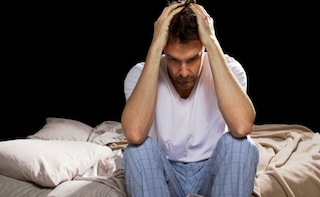How many times do you press the 'snooze' button every morning before eventually waking up? Call it laziness or blame it on the weather, getting out of bed feeling fresh every morning is not everyone's cup of tea. Sleep is such an important part of human existence that not getting adequate hours of shut eye can make most of us irritable, lethargic and low on energy. While we don't know definitively if lack of sleep can kill a human being, we do know that it has several adverse effects on the body. Especially when you go through prolonged periods of lack of sleep. According to a report by fitness solutions firm Fitbit, Indians are among the poorest sleepers in the world, clocking in an average of 6.55 hours of sleep a night.
Advertisement
Advertisement
Advertisement
Advertisement
For the latest food news, health tips and recipes, like us on Facebook or follow us on Twitter and YouTube.
Advertisement
